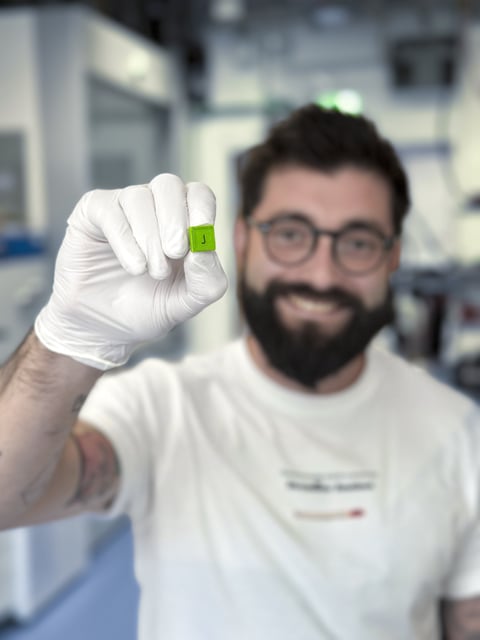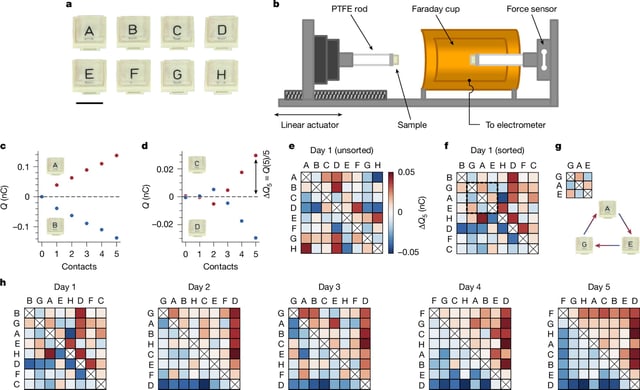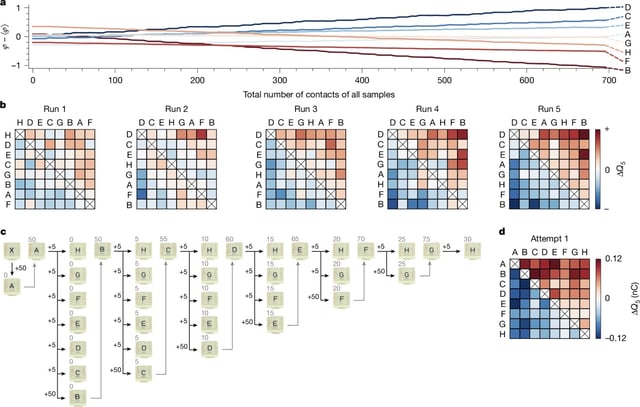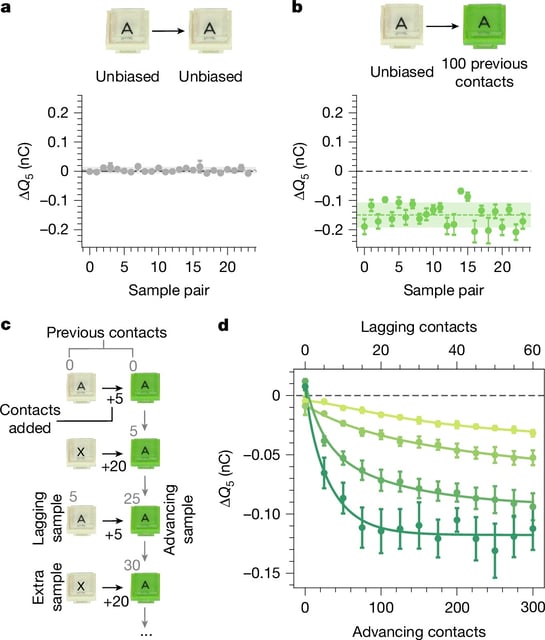Overview
- Researchers at the Institute of Science and Technology Austria (ISTA) found that a material's contact history governs its static electricity behavior.
- The study explains why experiments on static electricity, particularly with insulators, have long appeared random and inconsistent.
- Repeated contact between identical materials, such as polydimethylsiloxane (PDMS), led to predictable charge exchange after approximately 200 interactions.
- The team demonstrated that a triboelectric series, which orders materials by charge tendency, can be intentionally designed by controlling contact frequency and sequence.
- Microscopic smoothing of surface roughness during repeated contact is the only detectable change, hinting at a potential link to charge transfer mechanisms.



